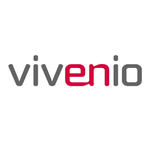Description

Sparxo

vivenio
Comprehensive Overview: Sparxo vs vivenio
As of my last update in October 2023, here is a comprehensive overview of Sparxo and Vivenio:
Sparxo
a) Primary Functions and Target Markets:
- Primary Functions:
- Sparxo is an event ticketing and registration platform primarily designed to help event organizers sell tickets, manage guests, and check-in attendees. It offers tools for ticket creation, sales tracking, and day-of-event management. The system also integrates with various social media platforms to enhance marketing efforts and improve attendee engagement.
- Target Markets:
- The platform is suitable for a wide range of events, from concerts, festivals, and conferences to workshops and community gatherings. They target smaller to mid-sized event organizers who require robust ticketing solutions.
b) Market Share and User Base:
- Sparxo targets a niche market and is considered a smaller player compared to larger event management software providers. Its market share is limited, with a user base primarily consisting of independent event organizers who benefit from its user-friendly interface and social media integration capabilities.
c) Key Differentiating Factors:
- Social Media Integration: Sparxo offers deep integration with social media platforms, helping organizers leverage these channels for marketing events.
- Customization and Branding: Allows organizers to fully personalize the ticketing experience to match their event’s branding.
- Community Focus: Emphasizes building communities around events by encouraging repeat interactions and enhancing attendee experiences.
Vivenio
a) Primary Functions and Target Markets:
- Primary Functions:
- Vivenio is an event management software that encompasses a suite of tools for event planning, management, ticketing, and attendee engagement. It provides event registration, ticket sales, on-site check-ins, and analytics.
- Target Markets:
- It is targeted towards more professional event managers and organizations that need comprehensive management solutions, including corporations hosting large conferences, exhibitions, and seminars.
b) Market Share and User Base:
- Vivenio has a presence in more professional and corporate sectors, giving it a potentially slightly more expanded market share compared to Sparxo. Its user base consists largely of businesses and event professionals who require a more integrated and sophisticated event management solution.
c) Key Differentiating Factors:
- Comprehensive Tools: Offers a broader set of functionalities designed for larger and more complex events.
- Corporate Focus: Strong focus on meeting the needs of corporate event planners, offering tools suited for large-scale events.
- Robust Data Analytics: Provides deeper analytics tools that are useful for tracking event performance and making data-driven decisions.
In Comparison:
- Market Positioning: Sparxo is more suitable for smaller, independent events, while Vivenio targets a professional, corporate audience with larger-scale event needs.
- User Base and Reach: Vivenio, due to its comprehensive offering, might cater to a broader corporate audience, whereas Sparxo appeals to niche independent event organizers.
- Functional Depth: Vivenio offers a more extensive suite of features for complex event management, whereas Sparxo focuses on a user-friendly experience with strong social media ties and customization options.
While both platforms serve the event industry, their distinctions lie in their target users, the complexity of functionality, and the primary focus on different types of events (community-driven vs. corporate).
Contact Info

Year founded :
Not Available
Not Available
Not Available
Not Available
Not Available

Year founded :
2017
+34 911 98 80 50
Not Available
Spain
http://www.linkedin.com/company/vivenio
Feature Similarity Breakdown: Sparxo, vivenio
As of my last update in October 2023, Sparxo and Vivenio are platforms designed to facilitate event management and ticketing. Below is a breakdown of their feature similarities and differences:
a) Core Features in Common
-
Event Ticketing: Both platforms allow organizers to create and sell tickets for events, providing options for different ticket types and pricing.
-
Event Management Tools: Each offers tools to manage event details such as scheduling, venue information, and attendee management.
-
Customizable Event Pages: Sparxo and Vivenio allow users to create branded event pages where attendees can find information about the event and purchase tickets.
-
Attendee Tracking & Reporting: Both platforms provide features for tracking attendance and gathering attendee data, which can be used for analytics and reporting.
-
Payment Processing: They integrate with payment gateways to process ticket sales securely.
-
Promotional Tools: Both services provide tools for promoting events through email marketing or social media integration.
b) User Interface Comparison
-
Sparxo: Known for its user-friendly interface, Sparxo emphasizes ease of use with a focus on seamless ticket buying and event management processes. It tends to have a more straightforward design, which appeals to users looking for a quick setup and deployment without overly complex features.
-
Vivenio: Vivenio also offers a user-friendly interface but often focuses on providing a bit more detail and customization options. It might cater more to users who want more control over various event aspects, often resulting in a slightly steeper learning curve compared to Sparxo.
Both interfaces are designed to cater to the needs of event planners and ticket buyers, but Sparxo leans towards simplicity and ease, while Vivenio offers more depth for those who want more nuanced control over their event management and ticketing processes.
c) Unique Features
-
Sparxo: One of the unique aspects of Sparxo is its emphasis on social engagement. It offers features that encourage social sharing and integration with community platforms, which can be particularly useful for events that rely on viral promotion. Sparxo also prides itself on a lower service fee for ticket processing which can be a significant advantage for event organizers looking to maximize revenue.
-
Vivenio: Vivenio often highlights its comprehensive integration capabilities with CRMs and other enterprise tools. Additionally, it provides more in-depth analytics and reporting features, which can be particularly appealing to corporate event planners who need detailed insights into event performance and attendee engagement.
Overall, while both platforms cover the basic needs of event management and ticketing, Sparxo might appeal more to smaller events or those with a strong community focus, whereas Vivenio might be better suited for users needing robust integration and detailed reporting capabilities.
Features

Ticketing Solutions
Event Management
Marketing Tools
Analytics & Reporting
Attendee Management

User-Friendly Event Management
Comprehensive Reporting
Secure Payment Processing
Efficient Communication Tools
Best Fit Use Cases: Sparxo, vivenio
Sparxo and Vivenio are both event management platforms, but they cater to different needs and scenarios, making them suitable for various types of businesses, projects, and industry verticals.
Sparxo
a) Best Fit Use Cases
- Types of Businesses or Projects:
- Community-centric Events: Sparxo excels for organizations that focus on building and nurturing communities, such as local clubs, non-profits, and cultural associations. Its features are tailored for organizations that want to maintain a strong connection with their audience.
- Brand-focused Businesses: Ideal for brands and businesses looking to maintain brand consistency during events, as it allows for significant customization and the embedding of ticket sales on the organization's website.
- Small to Medium Enterprises (SMEs): It's suitable for smaller events and SMEs that need an event management solution that integrates well with their existing CRM and marketing tools.
d) Industry Verticals or Company Sizes:
- Small to Medium Enterprises: Sparxo's cost-effective and integrated solutions are particularly beneficial for SMEs that need professional event management without the overhead of complex enterprise-level systems.
- Non-profit Organizations: With its community-focused features and easy social media integrations, Sparxo suits non-profits that rely on events for fundraising and community engagement.
- Retail and Hospitality: Businesses in these sectors can leverage Sparxo to create engaging brand-centric events, fostering customer loyalty and brand awareness.
Vivenio
b) Preferred Use Cases
- Types of Businesses or Projects:
- Corporate and Enterprise Events: Vivenio is well-suited for larger organizations and enterprises that need to manage corporate conferences, seminars, and large-scale meetings with efficiency.
- Complex Event Needs: Organizations that require advanced features like detailed attendee management, comprehensive reporting, and analytics will find Vivenio's offerings beneficial.
- Global Events: For businesses operating on an international scale requiring multilingual support and complex logistics, Vivenio provides the necessary infrastructure.
d) Industry Verticals or Company Sizes:
- Large Enterprises: Vivenio’s robust feature set caters to the needs of large enterprises with complex event management requirements, including integrations with enterprise-level solutions like ERP and CRM systems.
- Conferences and Trade Shows: Industries that frequently host large-scale events, such as tech and healthcare conferences, can benefit from Vivenio's ability to handle detailed schedules and speaker management.
- Educational Institutions: Universities and large educational bodies that conduct multiple conferences, workshops, and seminars can leverage Vivenio’s platform for efficient management and delivery of events.
Both Sparxo and Vivenio cater to different niches within the event management spectrum, allowing businesses to choose the platform that best aligns with their event size, type, and underlying goals.
Pricing

Pricing Not Available

Pricing Not Available
Metrics History
Metrics History
Comparing undefined across companies
Conclusion & Final Verdict: Sparxo vs vivenio
To provide a comprehensive conclusion and final verdict for Sparxo and Vivenio, let's break down the evaluation based on available data and general information about event ticketing platforms (Sparxo) and residential software systems (Vivenio).
a) Considering all factors, which product offers the best overall value?
Best Overall Value:
-
It's essential to note that comparing Sparxo and Vivenio directly might not be entirely appropriate since they serve different primary functions—event ticketing versus property management—catering to different types of users. However, if we hypothetically assume overlapping functionalities or shared target audiences, the decision depends on specific business needs.
-
If you're an event organizer, Sparxo likely offers the best value due to its specialized focus on ticketing, user engagement, and event management.
-
Conversely, if you manage residential properties, Vivenio offers better value due to its specialized features in real estate management, tenant engagement, and property services.
Ultimately, the "best overall value" boils down to the needs: event management or property management.
b) Pros and Cons of Choosing Each Product:
Sparxo:
Pros:
- Event Specialization: Tailored for event organizers with strong features like customizable ticketing pages and social media integration.
- User Engagement: Tools available for direct communication with attendees, enhancing user experience.
- Data Analytics: Provides insights into attendee behavior and sales.
Cons:
- Niche Market: Predominantly useful only for event management, not suitable for businesses with other core focuses like property management.
- Learning Curve: Implementing new ticketing systems could require training for teams unfamiliar with digital event platforms.
Vivenio:
Pros:
- Real Estate Focus: Comprehensive features for managing residential and commercial properties including tenancy management, maintenance workflows, and communication with tenants.
- Efficiency Boost: Enhances efficiency in property operations through streamlined processes.
- Financial Tracking: Offers financial management tools like rent collection and expenditure tracking.
Cons:
- Not for Events: Does not cater to event management needs, limiting its utility to the real estate vertical.
- Complex Setup: Depending on the size of the property being managed, the initial setup may require significant time and resources.
c) Specific Recommendations for Users:
-
For Event Organizers: Consider choosing Sparxo if your primary objective is to create, promote, and manage events with customized ticketing options and rich user engagement features. Emphasis should be on how integral these aspects are to your operational needs.
-
For Property Managers: Vivenio should be a consideration for those who need a robust system for managing multiple properties, involving tenant relations, maintenance, and financial operations. Focus on long-term property management efficiencies and tenant satisfaction.
-
Hybrid Needs or Uncertainty: If you belong to a niche that somehow overlaps these seemingly distinct operations (unlikely, but possible in mixed-use development complexes hosting events), prioritize the function that aligns closest with your core revenue stream.
In conclusion, choosing between Sparxo and Vivenio is not straightforward due to their distinct market specialties. It highly depends on whether the user priorities align more closely with event management or property management. Evaluating current needs and potentially seeking solutions that can integrate with one another for hybrid use could also be beneficial.
Add to compare
Add similar companies



